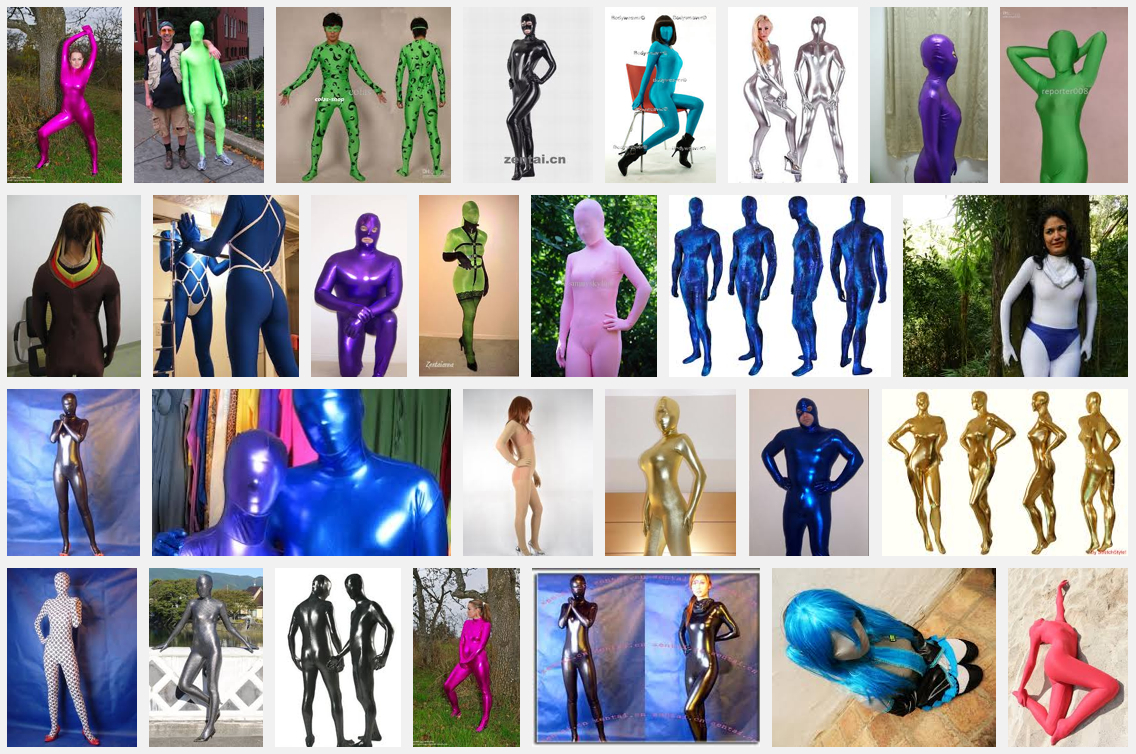The latest Japanese export may not become as ubiquitous as Pokemon or the Toyota Camry. However, aficionados of Zentai seem to be increasing in numbers, and outside of the typical esoteric haunts such as clubs or during Halloween parties. Though, it may be a while before Zentai outfits appear around the office.
From the Washington Post:
They meet on clandestine Internet forums. Or in clubs. Or sometimes at barbecue parties, where as many as 10 adherents gather every month to eat meat and frolic in an outfit that falls somewhere between a Power Ranger’s tunic and Spider-Man’s digs.
They meet on clandestine Internet forums. Or in clubs. Or sometimes at barbecue parties, where as many as 10 adherents gather every month to eat meat and frolic in an outfit that falls somewhere between a Power Ranger’s tunic and Spider-Man’s digs.
It’s called “zentai.” And in Japan, it can mean a lot of things. To 20-year-old Hokkyoku Nigo, it means liberation from the judgment and opinions of others. To a 22-year-old named Hanaka, it represents her lifelong fascination with superheroes. To a 36-year-old teacher named Nezumiko, it elicits something sexual. “I like to touch and stroke others and to be touched and stroked like this,” she told the AFP’s Harumi Ozawa.
But to most outsiders, zentai means exactly what it looks like: spandex body suits.
Where did this phenomenon come from and what does it mean? In a culture of unique displays — from men turning trucks into glowing light shows to women wearing Victoria-era clothing — zentai appears to be yet another oddity in a country well accustomed to them.
The trend can take on elements of prurience, however, and groups with names such as “zentai addict” and “zentai fetish” teem on Facebook. There are zentai ninjas. There are zentai Pokemon. There are zentai British flags and zentai American flags.
An organization called the Zentai Project, based in England, explains it as “a tight, colorful suit that transforms a normal person into amusement for all who see them. … The locals don’t know what to make of us, but the tourists love us and we get onto lots of tourist snaps — sometimes we can hardly walk 3 steps down the street before being stopped to pose for another picture.”
Though the trend is now apparently global, it was once just a group of Japanese climbing into skintight latex for unknown reasons.
“With my face covered, I cannot eat or drink like other customers,” Hokkyoku Nigo says in the AFP story. “I have led my life always worrying about what other people think of me. They say I look cute, gentle, childish or naive. I have always felt suffocated by that. But wearing this, I am just a person in a full body suit.”
Ikuo Daibo, a professor at Tokyo Mirai University, says wearing full body suits may reflect a sense of societal abandonment. People are acting out to define their individuality.
“In Japan,” he said, ”many people feel lost; they feel unable to find their role in society. They have too many role models and cannot choose which one to follow.”
Read the entire article here.
Image courtesy of Google Search.
 Send to Kindle
Send to Kindle